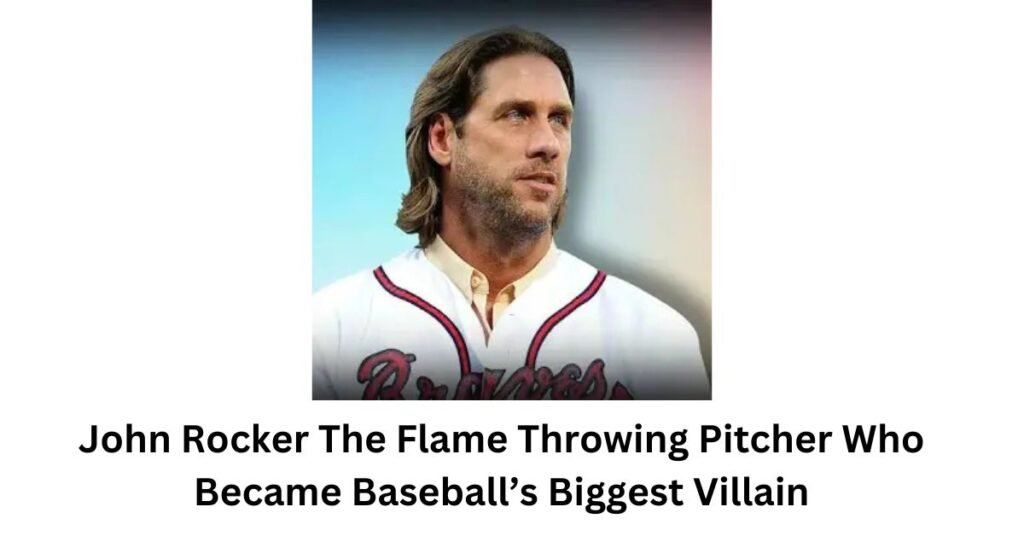John Rocker: The Controversial Fireballer Who Shook Baseball
John Rocker wasn’t just another MLB pitcher—he was a human headline. Known for his blazing fastball and an even faster mouth, Rocker made waves in the late 1990s and early 2000s with the Atlanta Braves. His talent on the mound was undeniable, but his off-field antics made him one of baseball’s most polarizing figures. Love him or hate him, you couldn’t ignore him.
So, what made Rocker such a lightning rod for controversy? Let’s dive into his career, his infamous moments, and his lasting impact on baseball.
Rising Through the Ranks
Born on October 17, 1974, in Georgia, John Loy Rocker was a hometown boy who turned into an MLB fireballer. Drafted by the Atlanta Braves in 1993, he quickly climbed the ranks thanks to his explosive arm and fierce competitiveness.
By 1998, Rocker was in the big leagues, and by 1999, he had solidified himself as Atlanta’s go-to closer. With a fastball that regularly hit 98 mph and a menacing presence on the mound, he was the guy you wanted finishing games—if you were a Braves fan, that is.
The 1999 Season: Dominance on the Mound
Rocker’s best season came in 1999 when he recorded 38 saves with a 2.49 ERA. He was electric, intimidating, and undeniably effective. The Braves, stacked with stars like Chipper Jones and Greg Maddux, made a deep playoff run, thanks in part to Rocker’s dominance in the bullpen.
But just when it seemed like he was on the path to becoming one of baseball’s best closers, controversy hit—and it hit hard.
The Infamous Sports Illustrated Interview
If you’ve heard of John Rocker, chances are you’ve heard about that interview. In December 1999, Sports Illustrated published a piece where Rocker, in a rant-filled interview, made inflammatory comments about New York City, immigrants, minorities, and even fellow MLB players.
The backlash was swift. Rocker was labeled a villain, fans booed him mercilessly, and MLB hit him with a suspension and mandatory sensitivity training. Overnight, he went from Braves hero to baseball’s public enemy number one.
The Fallout: A Career in Freefall
Rocker’s career never truly recovered after the controversy.
- In 2000, his numbers dipped, and the constant media circus surrounding him didn’t help.
- By 2001, the Braves had seen enough and traded him to the Cleveland Indians.
- He bounced around with the Texas Rangers and Tampa Bay Devil Rays, but the magic was gone.
By 2003, at just 29 years old, Rocker’s MLB career was over. A guy who once looked like a future Hall of Fame closer was now out of the league.
Life After Baseball: Still Stirring the Pot
Most players fade into obscurity after retiring, but not Rocker.
- He appeared on Survivor: Millennials vs. Gen X in 2014, though he didn’t last long.
- He wrote a book, Scars and Stripes, in which he doubled down on his brash personality.
- He’s remained outspoken, often sharing controversial opinions on social and political topics.
While he never found his way back into baseball, he never stayed out of the spotlight.
John Rocker’s Legacy: Talent Overshadowed by Controversy
So, how should we remember John Rocker? As a dominant closer who helped the Braves win games? Or as a controversial figure who burned too many bridges?
His talent was undeniable, but his actions made him one of the most divisive figures in baseball history. If nothing else, he’s a cautionary tale: in sports, talent can take you far, but your words and actions can define you even more.


